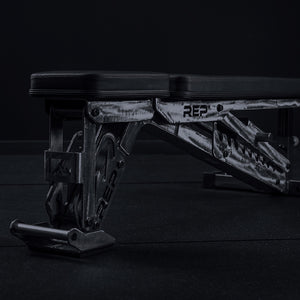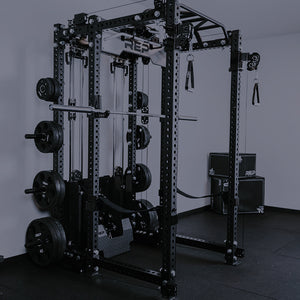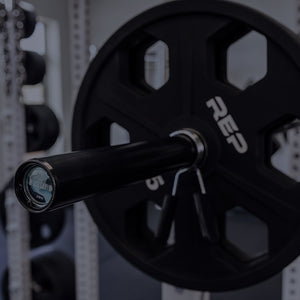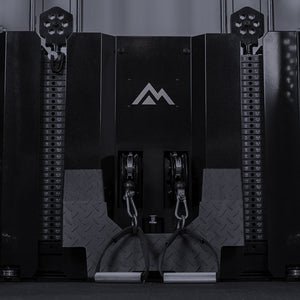
A six-pack is often considered the holy grail of fitness. And if that’s your fitness goal, you do you. Even more important than visible abs is a strong core. A strong core can improve your balance and stability in daily life and sports, according to the Mayo Clinic. A strong core may also translate into visible ab muscles if your body fat is low enough.
If you’d like to give extra focus to your core, we've got nine exercises to try, along with the equipment needed.
Strong Core Benefits
Regardless of whether you can wash laundry on your stomach or not, building your core muscles has benefits beyond aesthetics.
“Think of your core muscles as the sturdy central link in a chain connecting your upper and lower body. Whether you're hitting a tennis ball or mopping the floor, the necessary motions either originate in your core, or move through it,” according to Harvard Medical School.
So, a stronger core means a stronger total body.
Core Workouts with Weights
Adding weights to your core workouts is a game-changer, turning up the volume on your gains. Once you’ve nailed the basics, it's time to grab a dumbbell, kettlebell, medicine ball, or cable handle and give your abs some extra resistance love. Weighted core work helps you use progressive overload to build strength and even carve out more definition.
Best time to do it? Toward the end of your workout, when your core’s already fired up. Just make sure to move with control, keep your form sharp, and avoid turning it into a full-body swing-fest. Slow, steady, and spicy. That’s the name of the game.
1. Cable crunches

Kneeling crunches using a Tricep Rope attached to a cable machine or a resistance band are great for all levels. Holding the rope on your traps/neck to your head, you will crunch down against the resistance on the cables. Here’s an instructional video for you visual learners. Make sure you keep your core engaged the whole time and your neck neutral.
2. Supported sit-ups

Sit-ups are the most familiar type of core exercise. Make sure you’re in proper position with an Ab Support Mat. With sit-ups, you will lift your check until you’re almost sitting. Don’t pull on your neck as you raise; initiate the movement with your abdominals.
You can also make sit-ups more fun (and difficult) by playing sit-up toss with a medicine ball and a good partner.
3. Side bends
Hit your obliques with standing side bends, which you can do with a cable machine or simply a dumbbell in one hand, palm facing your body. Keeping your core tight, bend at the waist to the side, hold, and return to standing.
4. Ab rolls

The Ab Roller is a challenging core exercise that also works the whole body: lats, delts, chest, arms, back. Ab rollers demand full-body tension, control and balance, so they’re not necessarily a beginner move. The Ab Roller is the core exercise of choice for one of the best women powerlifters, Stacy "Bama" Burr.
Barbend provides some smart progressions to help you safely build up to using an Ab Roller, such as starting roll-outs on a fitness ball. Your stomach will hate you while you're doing it, but turn into iron in the long run.
5. Mat exercises

You can do so much on an exercise mat: planks, dead bugs, bird dogs, bicycle crunches, reverse crunches, lying leg raises, V-ups – the list goes on.
For proper planking, make sure your elbows line up under your shoulders and your butt isn’t sticking up in the air. The trick to making these most effective is to squeeze all your muscles while holding the position for as long as possible.
Want to make your planks harder/different? Flip a Balance Ball Trainer on the round blue side, grip the handles on the black bottom, and balance in a plank on that.
6. Hanging knee raises

What you’ll need? A pull-up bar on your power rack or a wall/ceiling mount pull-up bar. You can use a bench to help you reach the bar and arm slings to assist you, although you can also just hang from your hands.
7. Wood choppers
These target the obliques and cross-over great to other sports with swinging movements, such as golf, tennis, and baseball. Peep this video of a man doing wood choppers to make sure you’re doing them correctly. Use the Sports Handle or D Cable on a cable machine.
8. Decline situps/crunches

Do these on a decline bench, where you’ll get an added range of motion. The angle of the bench affects the difficulty. With a sit-up, you will (go figure) sit up all the way, whereas crunches only curl up your shoulders and upper back.
Add difficulty by holding onto a Medicine Ball or playing a game of medicine ball catch with a partner (throw it as you sit up).
Note: The main muscle used in decline crunches is the “six-pack muscle,” or rectus abdominus. Keep it engaged to prevent overusing your hip flexors.
9. Russian twists

Do these oblique exercises with your feet down, if you’re new, or lifted up as you get stronger. Rotate at the trunk, touching an elbow to the floor as you move from one side to the other. Here’s a visual.
As you get stronger, you can add load to these with a kettlebell, medicine ball, or other weight. Adding weight also requires your abs to stabilize against the weight as you move. Double bang for your buck.
Takeaway
Whether you're looking to sculpt washboard abs or you want a stronger mid-section to support a stronger total-body, training your abs with progressive overload is the route to take.
Try adding one of more of these exercises onto the end of your gym session and gradually increase the duration or resistance over time.
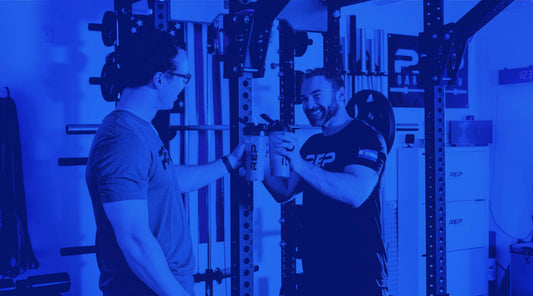
NEWSLETTER SIGNUP
Product launch information, promotions, blogs, and REP news.

